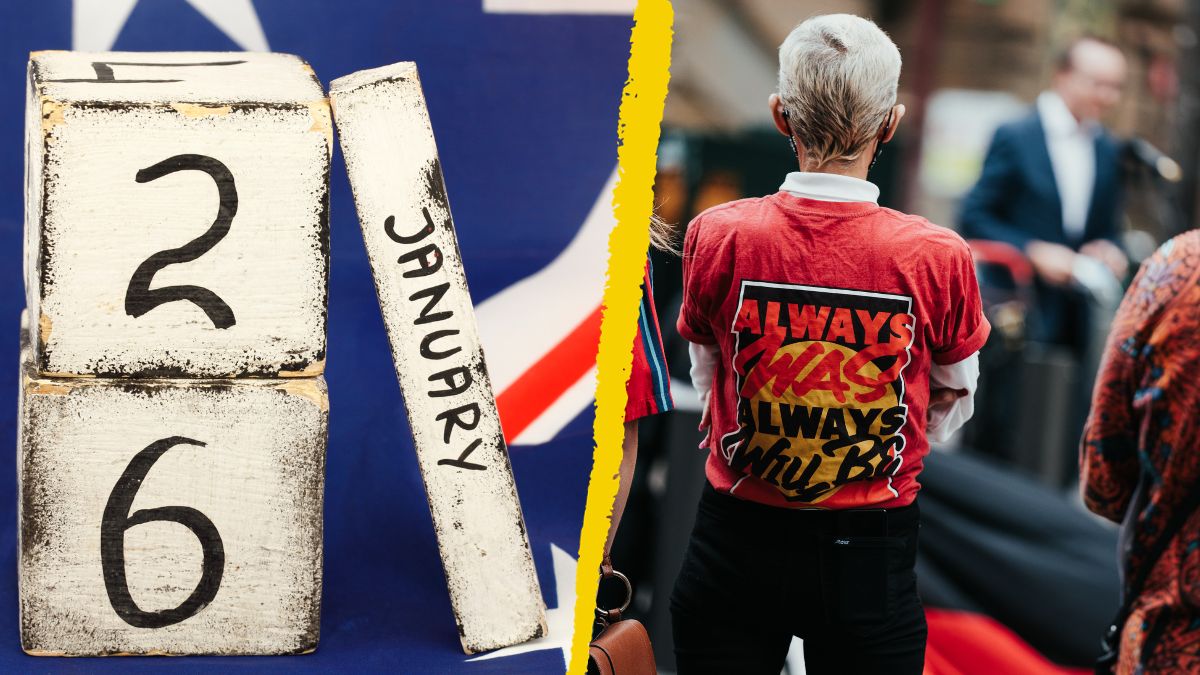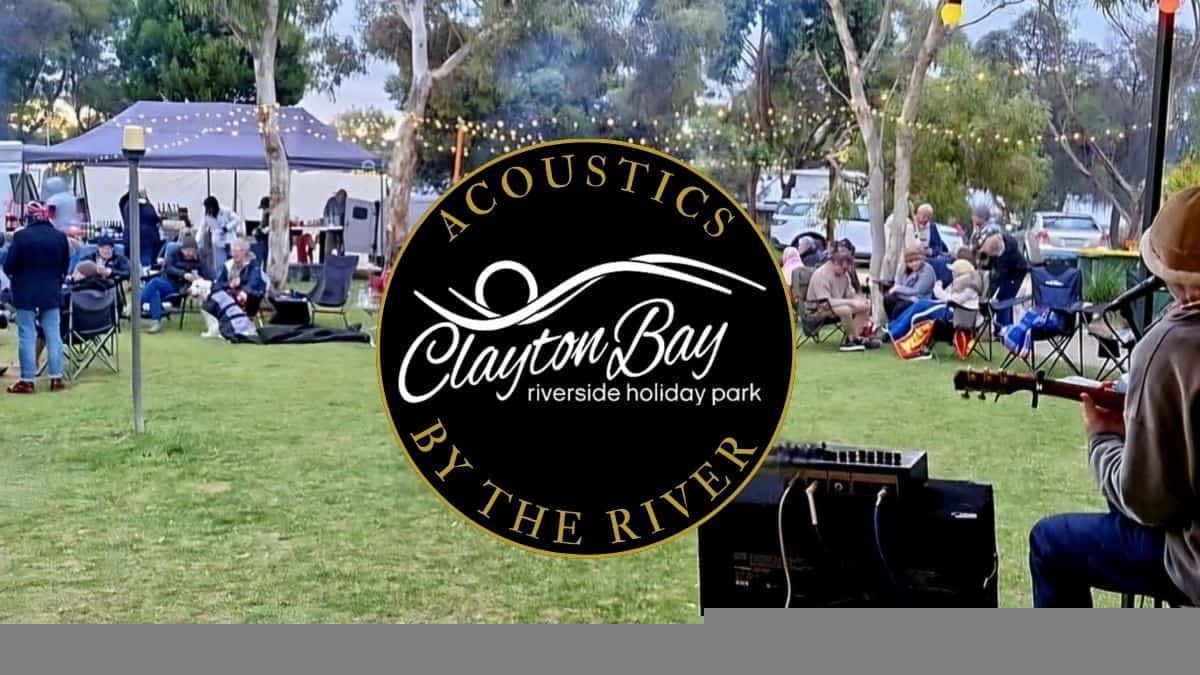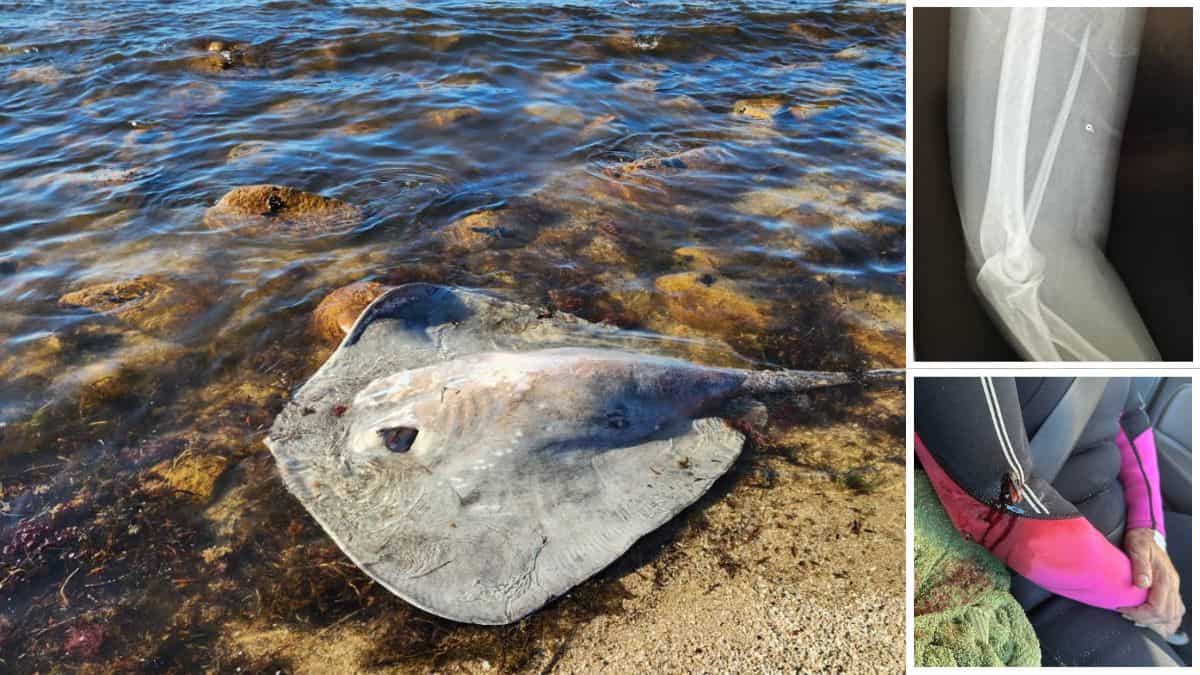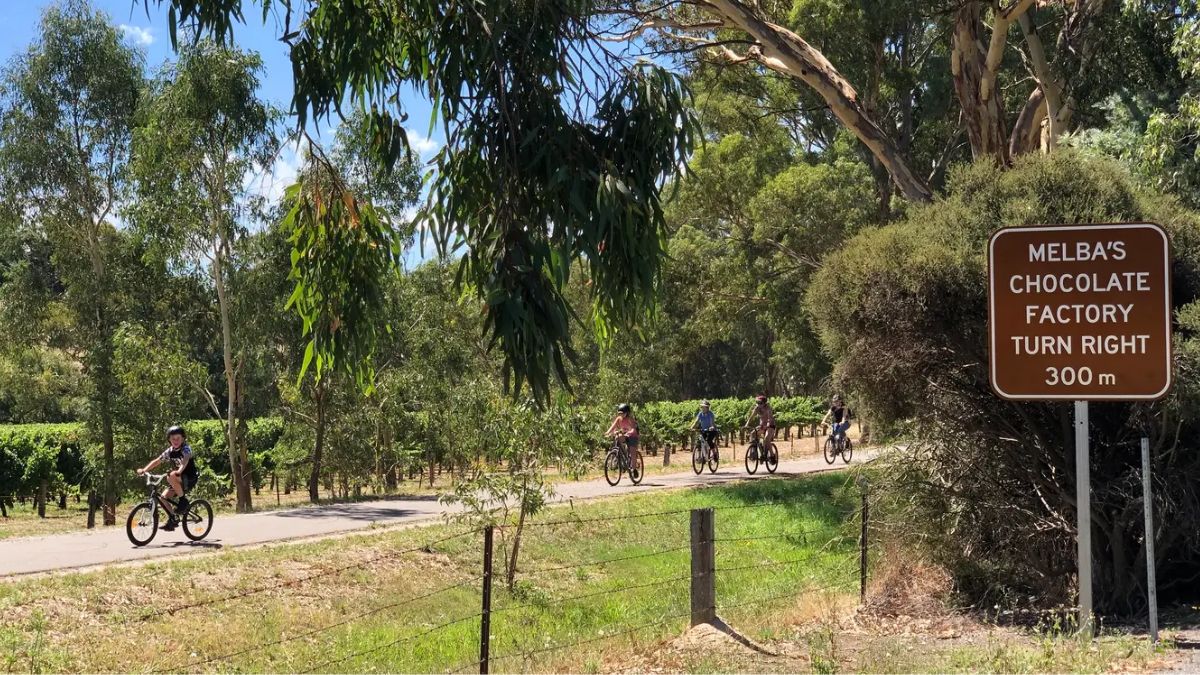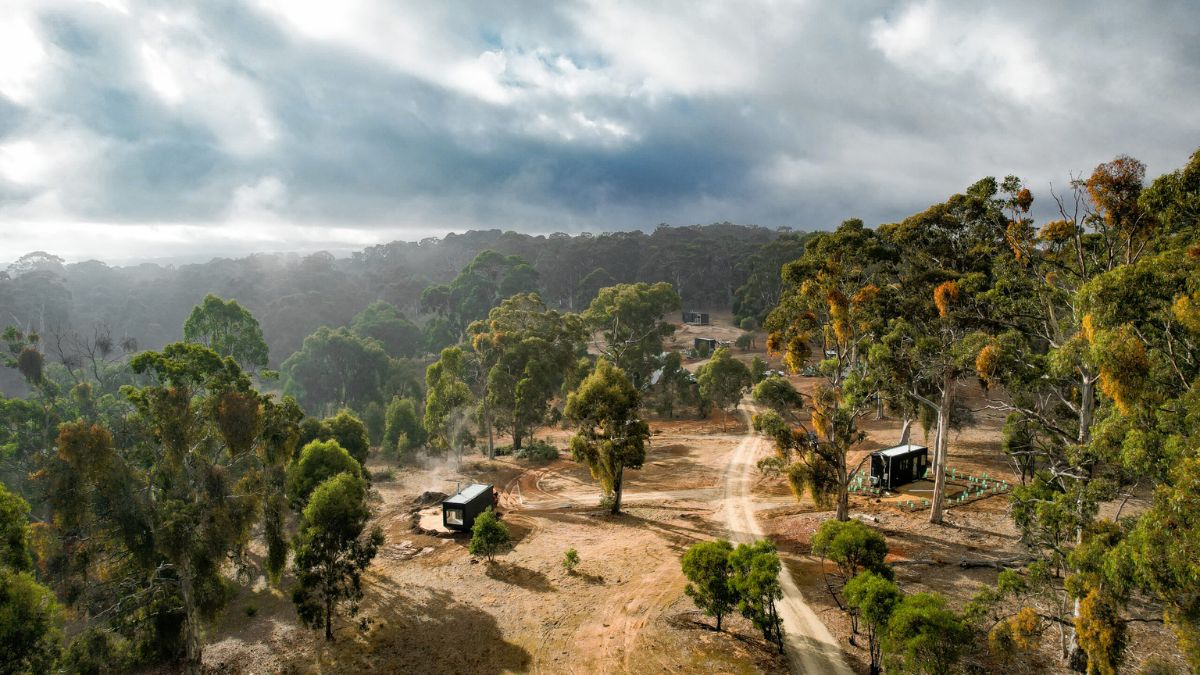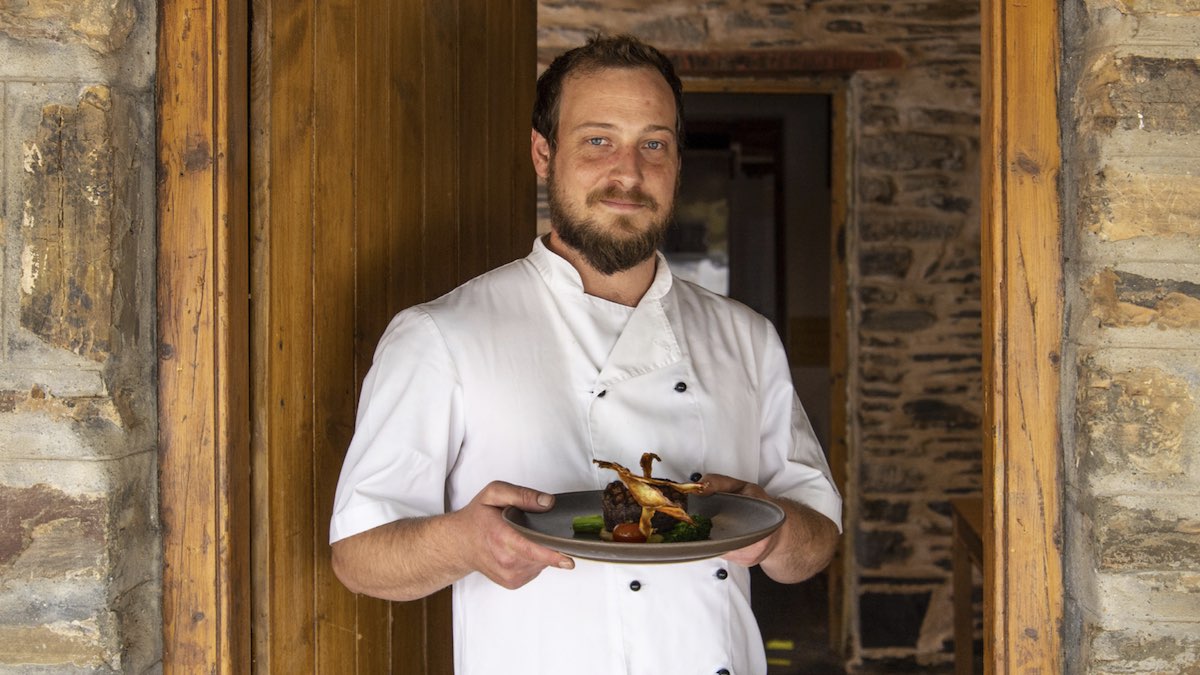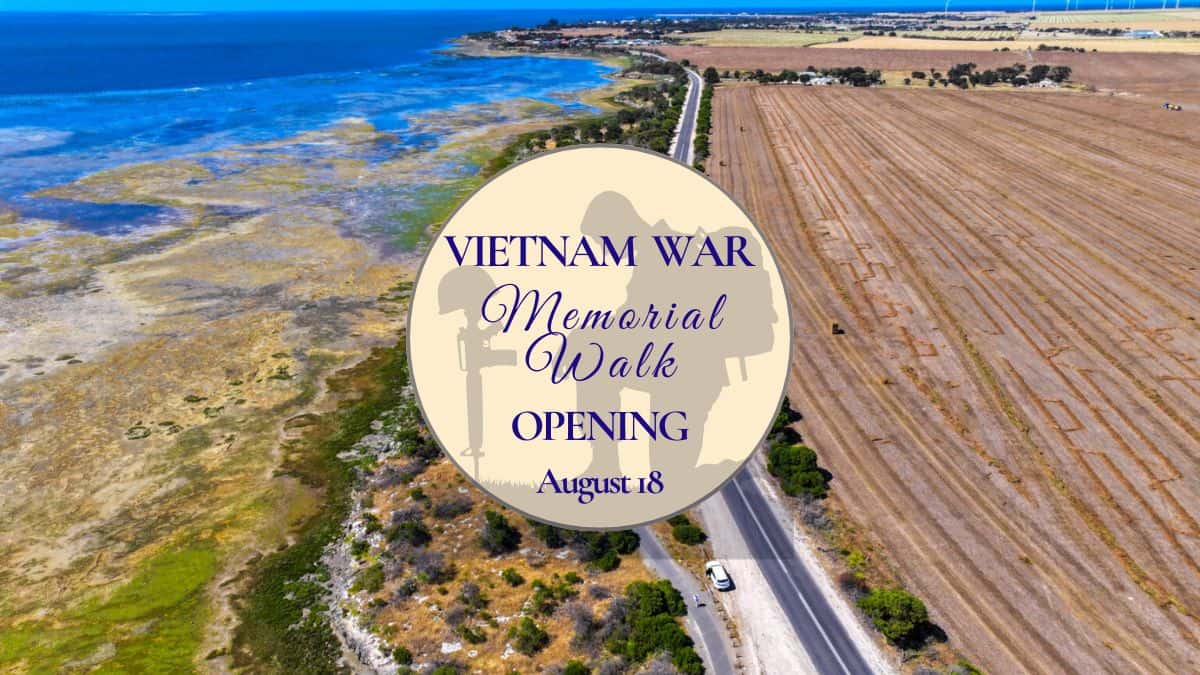Australia Day feels like a wedgie firmly stuck in Australia’s butt crack – it’s uncomfortable
Australia Day is an uncomfortable wedgie that we pick at from its edges but never pull out properly so that we can sit comfortably without wriggling in our chairs.
Reconciling the dichotomy of Australia Day is difficult for me. It’s a day that brings so much joy and elation for some and such sadness and pain for others. For those of us who can see both sides of the years-long debate, it seems impossible to solve.
So how did all of this get started anyway? What is Australia Day?
According to the Oxford Dictionary, it is “a national public holiday in Australia, commemorating the founding on 26 January 1788 of the colony of New South Wales”. It marks the raising of the Union Jack flag in Sydney Cove by Captain Arthur Phillip, who also officially declared British sovereignty over half of Australia.
Australia Day is a day to reflect on what it means to be Australian and to celebrate our contemporary nation. We have so much to celebrate and be thankful for – our lifestyle, democracy, sense of a “fair go” and freedom are all encompassed within a vast, diverse, and breathtaking landscape. I, like many, am grateful that I was serendipitously born in this country.
Australia Day is also a time to celebrate our multicultural modern society – a unique mix of cultures, blended exquisitely into a delicious and flavoursome eclectic soup.
We spend the day welcoming new citizens with Australian Citizen Ceremonies, and recognising and thanking incredible Aussies who go above and beyond to help improve the lives of others, contributing to diverse, friendly, and strong communities across a local, state, and national level. We cook barbeques, drink beer, go to the beach, and enjoy a day in the sun with our mates. We wave the flag and enjoy a day off.
However, the arrival of the First Fleet is not seen as a day to celebrate by many due to the massacres and treatment Indigenous people experienced at the hands of the British settlers and is often referred to as ‘Invasion Day’.
When Captain Arthur planted his flag and proclaimed “dibs, this is mine,”, what was to follow remains a stain on the undies wedged up our collective bums.
The tragic and shameful murder, dispossession, and oppression of First Nation people mark the beginning of hundreds of years of racist government policies, such as the stolen generation with colonisation’s legacy being seen with high incarceration rates, over-representation of chronic illness, and shorter life expectancy.
But it was over 200 years ago, right? And some folks don’t believe that we should be reminded of the past and made to feel guilty. We have come a long way in reconciling the past. Our First Nation people receive a lot of support, understanding, and services. We are embracing traditional Australian culture more and more and it’s taught widely throughout schools. There is a Welcome to Country at every speech made. What else can we do I hear you say. What do they want? Maybe it’s not up to us to fix it. It’s not “our” problem, it’s “their problem”. It wasn’t us who did it after all.
Gee, wouldn’t it be a bitter pill to swallow if Australia was invaded in our lifetime, with a foreign power ripping us out of our homes, killing a whole tonne of us, and then throwing a party each year to celebrate? The irony of it all.
So what’s the answer?
I don’t think the answer lies in either side of the debate. Like most solutions, it’s found somewhere else and in this case not necessarily in the middle.
It’s found where the unspoken nuances of a complicated and emotionally charged issue lay. It lays somewhere else that can’t be seen but only felt. It lies in the hearts and minds of Australians. It lies in compromise. It lies in hearing everyone’s point of view. It’s the group on the right meeting the group on the left and somehow transcending the tug-of-war competition and recognising the pain of the past authentically while also upholding the right to unashamedly celebrate our incredible country. Hard days can be celebrations too. We do it every year on ANZAC day.
Only by understanding, and listening to each other’s point of view with respect, compassion, and honesty will we ever pull out the wedgie that is January 26.

